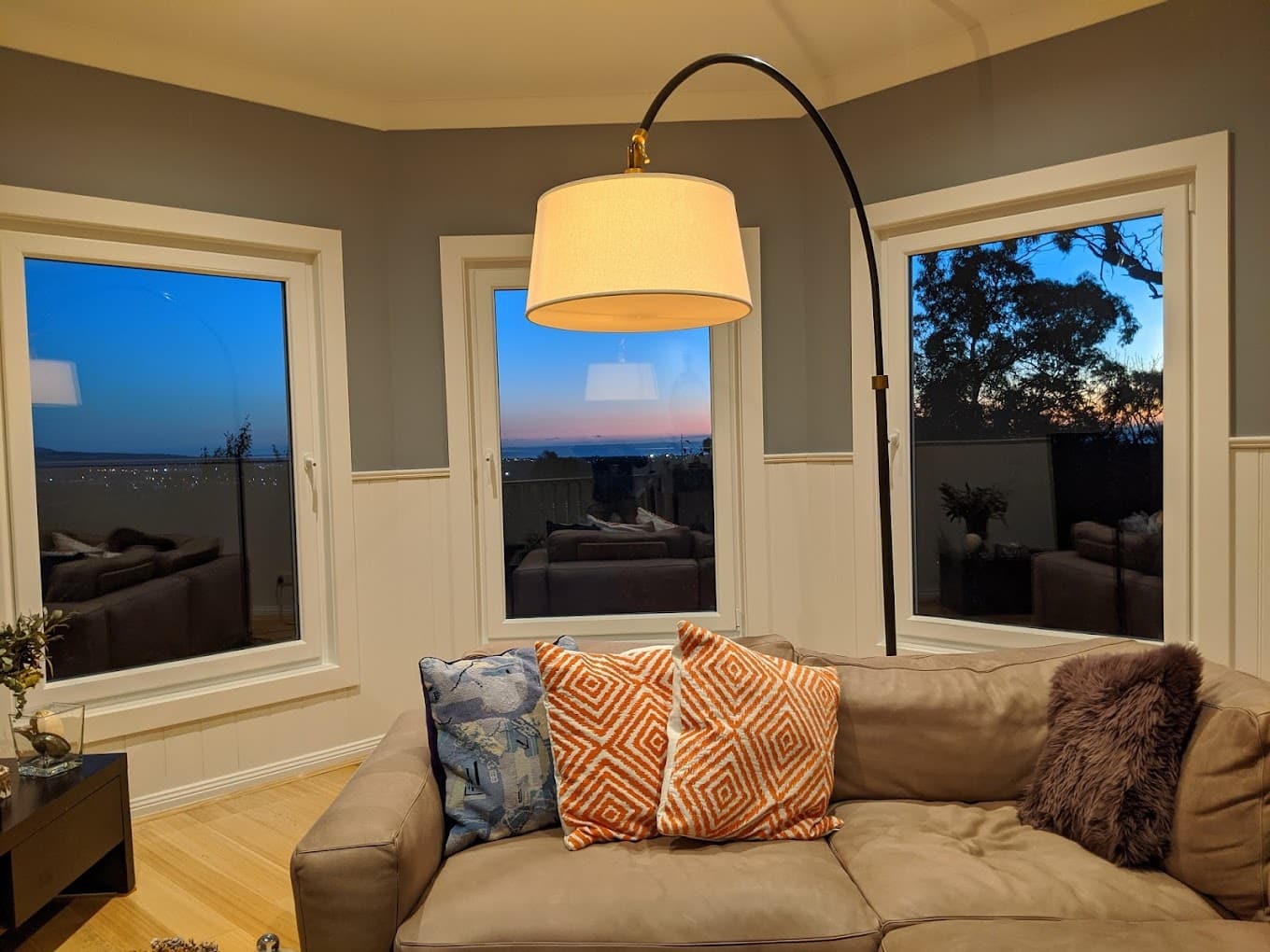We love to think that double glazed windows have become all the rage, especially as more homeowners are conscious of their energy efficiency, household running costs and the environmental impact of their energy usage. Double Glazed windows are such a great alternative for your home to have better insulation, reduced noise, condensation and less need to run your heating and cooling during peak temperature months. However, a common question or query we get, is how do they work? How do double glazed windows help energy efficiency? What do double glazed windows do? So today, we’ll explain it all to you.
What are double glazed windows made up of?
The concept of double glazed windows is simple, it’s essentially a window with two window panes instead of one, hence ‘double’. Although it might sound we just stick another piece of glass on top of another window pane, double glazed windows are made in a specific way that are not only custom to your window size and style but actually have a gap between the windows panes. This gap is usually about 12mm and although it looks like there’s nothing but air in between the two window panes, there is actually an odourless and colourless gas we utilise called argon gas, that creates the insulation effect of this gap between the window panes. Argon gas is already a molecule that’s in the air with nitrogen and oxygen but when installing double glazed windows, we increase the number of argon molecules in the gap between the window panes.
More argon molecules using argon gas is better than leaving the gap with normal air because argon gas is denser and heavier than oxygen molecules. This density is what creates great insulation as it takes longer for hot or cold air to go through the first window pane to get to the second window pane which ends up affecting the temperature of your home. The slow in temperature transfer from outside your home to inside is one of the ways that double glazed windows work their magic in increasing the insulation when they are installed. There are other gases that double glazers have used for installing double glazed windows such as Krypton and Xenon, which are all very stable, noble gases, but Argon is still the most widely used and popular with experienced double glazers like Windows Republic.
Double Glazing helps Insulation and Noise
Not only is the argon gas between the two window panes a dense gas that helps insulation but it’s also a poor conductor of heat, so it protects your home from losing heat in winter and receiving heat in summer. Double glazed windows are great for reducing your electricity bills throughout the year as your home is less likely to increase or decrease in temperature, as the argon gas between window panes stop warm air from escaping or entering at window entry/exit points in your home. Double glazing isn’t just for windows either as temperature transfer can occur with doors as well, which is why we also offer double glazed doors at Windows Republic.
One of the other benefits of having two window panes as part of double glazed windows is the reduction in noise. Whether your home is on a busy road or in the countryside next to a flock of birds, noise can be a pain wherever you live and double glazing helps to reduce noise and soundproof your home way better than single glazed windows. This noise reduction and thermal insulation is great for long term improvements to your lifestyle, to help you enjoy your home in peace and quiet, without the outdoors’ heat or cold interfering with your comfort or electricity bills.
If you’re interested in installing double glazed windows, feel free to contact us for a quote and learn more about the benefits for yourself and your family.




